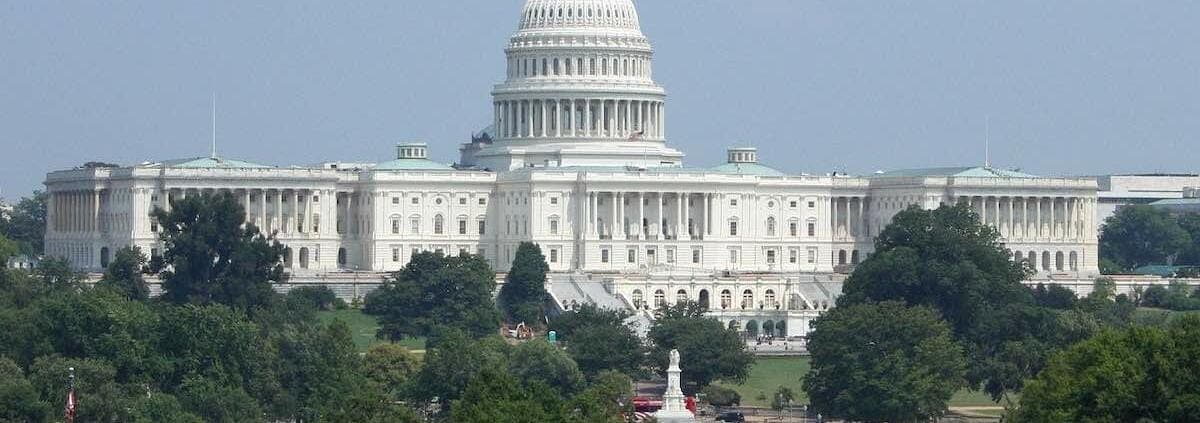Newsletter – Top Political Figures Are Pushing The U.S. Federal Government To Deschedule Cannabis
Top Political Figures Are Pushing The U.S. Federal Government To Deschedule Cannabis
September 15th, 2021, Mayors throughout the U.S. are urging the federal government to deschedule cannabis. Members of the U.S. Conference of Mayors approached President Biden with the purpose to legalize cannabis at the federal level; erase previous cannabis convictions; and to ensure that the commercialization of cannabis is done in a way that promotes social equity.
The U.S. Conference of Mayors states that the U.S. government has secured a patent that recognizes the medical benefits of cannabis and that the U.S. government recognizes the racially disparate impacts of the criminalization of cannabis. Additionally, they said the cannabis industry “is likely to become a global multi-trillion-dollar industry, with early U.S. sales already generating billions of dollars,” and that areas that were most affected by the criminalization of cannabis are underrepresented in ownership of cannabis businesses.
They believe that “the government is accountable for remediating all negative impacts of cannabis prohibition through every aspect of cannabis legalization and policy reform, specifically to ensure that communities disproportionately impacted by the prohibition of cannabis are able to benefit from this multi-billion-dollar industry.”
In addition to the U.S. Conference of Mayors supporting cannabis reform, other notable political figures such as Chuck Schumer, Sen. Cory Booker, and Ron Wyden are working on a federal cannabis reform bill. Additionally, House Judiciary Committee Chairman Jerrold Nadler is backing a legalization bill that passed the chamber this past session.
Marijuana Legalization Doesn’t Lead To Increased Youth Use, American Medical Association Study Finds
September 7th, 2021, a study was published in a leading scientific journal stating that youth cannabis use does not increase after state legalization for either medical or adult-use. The study went on to say that changes in cannabis policy, had a “statistically indistinguishable” change.
The study found that certain regulated cannabis models lead to lower cannabis use among adolescents, this directly conflicts with anti-legalization arguments that are commonly made.
The analysis was published by the Journal of the American Medical Association and analyzed federal Youth Risk Behavior Survey data from 1993-2019 in ten medical or adult-use states. This study builds upon existing studies on the impact of cannabis reform on youth consumption that reached similar conclusions.
Additionally, the study found that youth cannabis consumption decreased in states where adult-use cannabis had been in place for at least two years.
“Consistent with estimates from prior studies, there was little evidence that legalization of medical or adult-use cannabis encourage youth cannabis use,” the researchers said.
While the study stated that there were no statistically distinguishable increases in youth cannabis, and that cannabis use declined in adolescents where cannabis is legalized, the study’s authors did not attempt to explain why this is the case. However, many advocates of cannabis legalization have long reasoned that allowing cannabis sales in a regulated environment would minimize youth access by minimizing the illicit market.
Merrill Mellows Approach to Marijuana-Related Businesses
August 25th, 2021, Merrill Executives unveiled Project Thunder, aimed at addressing frustrations and pain points endured by the brokerage’s financial advisors.
September 1st, 2021, a Merrill Executive confirmed that part of their Project Thunder initiative was focused on revisiting the firm’s approach to clients with marijuana-related businesses.
According to Merrill Executives, Merrill plans to streamline their process of onboarding clients who own or invest in marijuana-related businesses by creating more flexible internal rules for dealing with such clients. These rules would allow Merrill advisors to seek approval for clients with marijuana-related business at the divisional level for “lower risk situations”, meaning advisors will no longer need approval from a New York-based executive in those situations.
Because of the lack of uniformity between states and the federal illegality of cannabis, onboarding clients with marijuana-related business and investments has been tricky for many brokerages, according to Alma Angotti, a partner with the compliance consulting firm Guidehouse.
While this is certainly a step in the right direction for the cannabis industry, one Merrill veteran advisor in Florida was asked about Merrill’s statement and said, “I would say all good things but not monumental,” illustrating there is still more work to be done before mass adoption of cannabis at Merrill and other brokers.
U.S. Cannabis Insurers Get Ready To Roll As Federal Legalization Nears
August 19th, 2021, as Congress inches closer to legalizing cannabis at the federal level, insurers are gearing up for a potential ten-fold increase in cannabis sales. While 36 U.S. states and the District of Columbia have legalized cannabis for medical or adult-use, insurers have had a particularly hard time insuring growers, testing labs, and retailers as strict federal laws criminalize cannabis.
With Congress considering bills that would relax federal laws, insurers are filling the gap with new types of coverage. Insurers are regulated at the state level and can offer coverage in states where cannabis is legal.
Federal legalization or decriminalization of cannabis would allow insurers to fully insure the massive cannabis industry that is slated for even more growth in the near future. According to BDSA, sales in the cannabis industry are expected to hit $41bn in 2026.
There is an overwhelming need for adequate insurance coverage according to the more than a dozen insurers, brokers, agents, lawyers and cannabis business owners that Reuters interviewed. They stated in addition to the current available policies there was an overwhelming need for adequate insurance coverage for crops and theft, along with larger payout limits
For example, last year there were $17.6bn in sales in the cannabis industry, but the insurance industry only wrote $250 million in policies last year, with only a handful of carriers that offered limited property and liability coverage. This clearly illustrates the lack of adequate insurance options available for cannabis businesses.
U.S. Cannabis Firm PharmaCann Plans IPO As New York Weed Legalization Lifts Demand
August 16th, 2021, “PharmaCann, one of the ten original cannabis licensees in New York, has confidentially filed for an initial public offering that could value it at well over $1 billion,” sources told Reuters. PharmaCann currently operates in five other states in the U.S.
PharmaCann’s planned IPO would help raise funds before recreational cannabis sales begin sometime next year in New York, with one source stating that the IPO could take place this Fall. In March, New York became the 16th U.S. state to legalize the sale of adult-use cannabis, which prompted a race to secure a position in the New York market which expected to be among the world’s biggest.
Cannabis remains federally illegal and companies like PharmaCann, which grow or sell the plant, are prohibited from listing on the Nasdaq and the New York Stock Exchange. Because of this PharmaCann likely to seek a dual listing, with its shares listed on the Canadian Securities Exchange and over-the-counter trading in the U.S.
The IPO being valued well over $1 billion might seem crazy but is justified in part by Cronos Group Inc acquired a 10.5% stake in PharmaCann for $110.4 million this June (putting PharmaCann’s valuation at $1.1 billion).
Additionally, PharmaCann’s rival AWH Holdings Inc listed in May, with the shares having climbed 38% since. AWH has a market value of $1.9 billion.
According to sources, PharmaCann has received numerous takeover offers in the last few months. While PharmaCann has confidentially filed for an IPO, they could still decide to stay private or take a different route to go public.
DISCLAIMERS: This site is not intended to provide any investment, financial, legal, regulatory, accounting, tax or similar advice, and nothing on this site should be construed as a recommendation by Key Investment Partners LLC, its affiliates, or any third party, to acquire or dispose of any investment or security, or to engage in any investment strategy or transaction. An investment in any strategy involves a high degree of risk and there is always the possibility of loss, including the loss of principal. Nothing in this site may be considered as an offer or solicitation to purchase or sell securities or other services.









Leave a Reply
Want to join the discussion?Feel free to contribute!